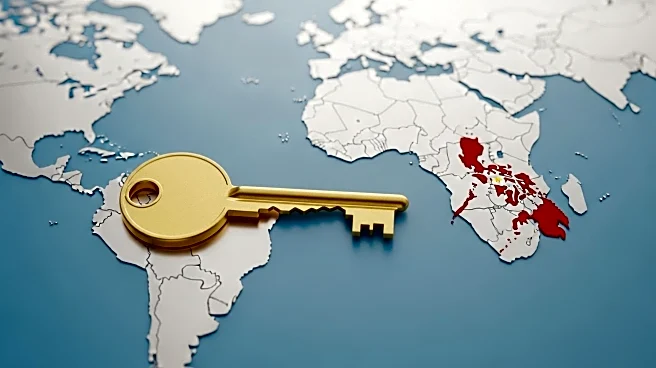What is the story about?
What's Happening?
ICTSI, a Philippines-based port operator, has secured a legal victory in South Africa, with the Durban High Court upholding its 25-year concession for the Durban Container Terminal Pier 2. This decision follows a legal challenge by APM Terminals, which questioned ICTSI's solvency calculation method during the bidding process. The court ruled in favor of ICTSI, allowing the company to proceed with its plans to enhance the terminal's capacity. Additionally, ICTSI has extended its concession in the Philippines, with subsidiaries continuing operations at Subic Bay International Terminals until 2058.
Why It's Important?
The court's decision in South Africa allows ICTSI to move forward with significant investments in the Durban port, which is crucial for South Africa's container traffic and economic growth. The ruling supports privatization efforts, potentially improving operational efficiency and capacity at the port. In the Philippines, the extended concession at Subic Bay International Terminals positions ICTSI to capitalize on growing demand in the region, enhancing trade and economic development. These milestones reinforce ICTSI's global presence and strategic importance in the maritime industry.
What's Next?
With the legal challenge resolved, ICTSI is expected to invest in upgrading the Durban Container Terminal's capacity, potentially increasing throughput and addressing congestion issues. In the Philippines, ICTSI's investment in Subic Bay International Terminals will likely attract more intra-Asian shipping services, boosting regional trade. The company's strategic moves may prompt competitors to reassess their positions and investment strategies in these markets.
Beyond the Headlines
The legal victory in South Africa highlights the complexities of international business operations and the importance of adhering to local regulations and tender requirements. ICTSI's success may encourage other companies to explore similar opportunities in emerging markets, emphasizing the role of legal frameworks in global commerce.















